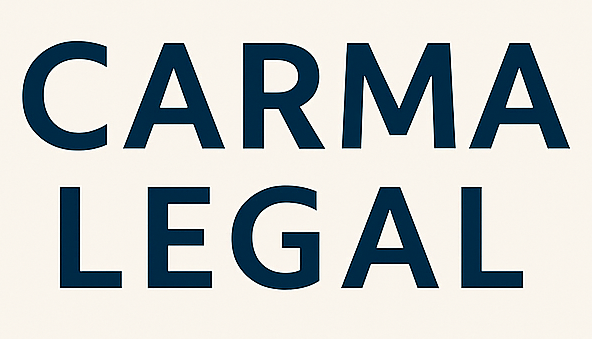Understanding trust attorney roles
When it is time to plan your legacy, you need guidance from a legal professional who understands the full spectrum of trust-based planning. Working with a trust attorney for families ensures that your wishes are documented clearly, your assets move smoothly to beneficiaries, and your loved ones enjoy the peace of mind that comes from proactive planning. A family trust attorney also helps you avoid probate delays, minimize tax liabilities, and maintain your family’s privacy.
What a trust attorney does
A trusts lawyer specializes in structuring legal arrangements to manage, protect, and distribute assets. Core responsibilities include:
- Drafting and funding living trusts, testamentary trusts, and specialized vehicles such as charitable or life insurance trusts
- Advising on tax strategies to reduce federal and state estate taxes, including irrevocable life insurance trusts (ILITs) and grantor retained annuity trusts (GRATs) [1]
- Coordinating powers of attorney, advance health care directives, and guardianship provisions for incapacity planning [2]
- Ensuring that documents are enforceable, state-compliant, and regularly updated after life events
- Representing your family in trust administration and litigation, if disputes arise
By handling these tasks, your attorney lays the groundwork for a comprehensive plan that safeguards assets throughout your lifetime and beyond.
Comparing trusts vs wills
A trust provides more control and privacy than a will, but both instruments serve unique roles. Below is a comparison:
| Feature | Trust | Will |
|---|---|---|
| Effective date | Immediately upon signing and funding | Effective only after death |
| Probate | Bypasses probate, keeping estate matters private | Subject to probate, which can be public and time-consuming |
| Asset management | Allows post-death conditions and detailed distribution rules | Directs distribution after death without lifetime control |
| Incapacity planning | Provides for decision-making if you become incapacitated | Does not address incapacity; may require court intervention |
By understanding these differences, you can work with your attorney to choose the right combination of documents for your situation.
Why you need a specialist
General practitioners may handle basic wills, but a dedicated specialist brings deep expertise in areas such as:
- Irrevocable trust design to shelter life insurance proceeds and remove assets from your taxable estate
- Special needs trusts that preserve government benefits for dependents [3]
- Asset protection trusts to reduce exposure to creditors and lawsuits [4]
- Charitable remainder trusts for philanthropic goals and tax deductions
- Complex family limited partnerships or generation-skipping transfer planning
A family-focused trust attorney helps you navigate changing laws and exemption thresholds, like the 2025 federal estate tax exemption of $13.99 million per individual and $27.98 million for married couples [5]. With specialist advice, you can avoid costly errors and enjoy greater confidence that your plan will stand up to legal scrutiny.
Identifying key qualifications
Before you meet with candidates, identify the credentials and specializations that demonstrate true expertise in trust and estate law. These markers help you focus on attorneys who stay current with evolving regulations and best practices.
Certifications and credentials
Specialized certifications show an attorney’s commitment to estate planning as a distinct practice area. Key designations include:
- ACTEC Fellow (Fellow of the American College of Trust and Estate Counsel): Invitation-only membership based on peer review, scholarship, and professional achievement [6]
- Certified Trust and Fiduciary Advisor (CTFA): Credential from the American Bankers Association indicating expertise in fiduciary and trust accounting
- Accredited Estate Planner (AEP): Joint designation from the National Association of Estate Planners & Councils, covering interdisciplinary planning
- Chartered Trust and Estate Planner (TEP): Credential from STEP (Society of Trust and Estate Practitioners) for global estate planning knowledge
- Board certification in wills, trusts, and estates in states such as Florida, which involves rigorous exams and practice requirements
When you interview an attorney, ask how they maintain continuing education and whether they publish or speak on estate planning topics. These activities signal a proactive approach to legal developments.
Trust law specializations
Trust attorneys often concentrate in specific planning genres. Verify that your candidate has experience in the vehicles most relevant to your goals:
- Revocable living trusts: Flexible documents that avoid probate and allow lifetime amendments [7]
- Irrevocable trusts: Structures that remove assets from your taxable estate but limit your control [8]
- Qualified Personal Residence Trusts (QPRT): Tools for transferring a home to heirs at a discounted value
- Intentionally Defective Grantor Trusts (IDGT): Strategies to shift future appreciation out of your estate
- Special needs trusts: Vehicles that protect benefits for dependents with disabilities [9]
- Charitable remainder and lead trusts: Instruments to combine philanthropic giving with tax benefits
- Family Limited Partnerships (FLP): Entities to centralize management of family-owned businesses or assets
Consider consulting both a revocable trust lawyer and an irrevocable trust attorney if your plan incorporates multiple trust types. Their combined expertise will ensure seamless integration of different strategies.
Evaluating attorney experience
Credentials set the stage, but practical know-how ensures your plan holds up under real-world conditions. When evaluating candidates, dig into their hands-on history with clients whose situations mirror yours.
Estate planning focus
A lawyer who dedicates most of their time to trusts and estates will be your best ally. During your consultation, ask:
- How many living trusts and irrevocable trusts they created in the past year
- Whether they also draft pour-over wills to catch assets outside your trust [10]
- If they coordinate durable powers of attorney and medical directives [11]
- How often they update client plans to reflect tax law changes or family events
An attorney who regularly handles cases like yours will anticipate potential pitfalls, streamline administrative processes, and adapt documents for maximum flexibility.
Client testimonials and referrals
Word-of-mouth remains one of the most reliable vetting tools. Beyond general online reviews, seek out:
- Written or video testimonials that describe the attorney’s process and outcomes
- Referrals from attorneys in complementary fields such as family law or real estate, who often collaborate on complex transfers [6]
- Examples of plans for households similar in size and asset complexity
- Feedback on the attorney’s ability to explain technical details in plain language
Look for consistent praise regarding responsiveness, organization, and attention to detail.
Litigation and complication management
Even with careful drafting, estate plans can face challenges. Your attorney should have a proven track record in:
- Resolving contested probate or trust disputes through negotiation or mediation
- Defending against claims of undue influence or fiduciary breach
- Handling emergency petitions, such as temporary guardianships or account audits
- Advising trustees on complex distributions and tax filings
An attorney experienced in dispute resolution can protect your family from prolonged court battles that drain assets and cause emotional strain.
Comparing fee structures
Costs vary widely among trust attorneys, so it pays to understand the different billing models and associated expenses. Transparent fee arrangements help you budget effectively and avoid surprises.
Hourly fees vs flat rates
Hourly billing charges you for each hour of work—commonly between $200 and $500 per hour depending on experience and location. This model suits highly personalized or complex estates where the scope cannot be precisely defined.
Flat fees cover the core trust drafting package or estate plan for a set price. Typical flat-fee ranges include:
- Simple revocable living trust with pour-over will: $2,500–$5,000
- Complex irrevocable trust or dynasty trust setup: $5,000–$10,000
- Comprehensive plan including power of attorney and health directives: $3,500–$6,500
Before agreeing to a flat fee, confirm what is included and whether drafting amendments, funding assets, or trustee consultations incur additional costs.
Retainers and ongoing costs
Many attorneys require an initial retainer, which is held in trust and billed against as work is performed. Key considerations:
- Minimum retainer amounts often range from $1,000 to $3,000
- Unused retainer balances should be returned promptly or applied to future services
- Annual maintenance or review fees may apply to trust administration, typically $500–$1,200 per year
Factor in ancillary costs such as recording fees for real estate transfers, notary services, and tax-form preparation by a CPA.
Value-based pricing
Some firms offer value-based or subscription pricing, where you pay a predictable annual fee for ongoing estate planning and trust administration. This model incentivizes efficiency and may include:
- Regular plan reviews and updates after life events
- Access to webinars, resource libraries, and discounted services from partner professionals
- Support for new trust instruments as your family grows
| Fee structure | How it works | Average cost range | Best for |
|---|---|---|---|
| Hourly billing | Billed per hour of work | $200–$500 per hour | Unpredictable or high-complexity estates |
| Flat fee | Fixed price for defined services | $2,500–$10,000 | Standard trust setups and simple estates |
| Retainer | Upfront deposit drawn down against hourly billing | $1,000–$3,000 | Ongoing advisory and multi-phase projects |
| Subscription pricing | Annual or monthly fee for broad service access | $1,200–$5,000 per year | Families seeking continuous support |
By weighing predictability against flexibility, you can choose the fee model that aligns with your planning needs and budget constraints. If avoiding probate is a top priority, investing in a seasoned probate avoidance estate planning lawyer may deliver long-term savings.
Ensuring state compliance
Estate planning rules can shift dramatically from one state to the next. Choosing an attorney licensed and experienced in your jurisdiction is essential to ensure documents hold up under local law and effectively avoid probate.
Board certifications
Board certification signals a recognized level of proficiency in wills, trusts, and estates. Not all states offer this credential, but where available, it can give you confidence in an attorney’s specialization. For example:
- Florida: Board certification in wills, trusts, and estates is granted after rigorous written and oral exams and a review of professional experience [6]
- Texas and Illinois: Offer specialty certifications through state bar boards
- California: No formal board certification, but membership in ACTEC or local bar sections serves as a proxy
During your interview, confirm your attorney’s active standing with the state bar and inquire about any mandatory continuing legal education in estate planning.
State-specific trust laws
Each state defines trustee duties, funding protocols, and registration requirements differently. Key examples:
- California: No state estate tax, but community property laws can affect trust funding. Separate documentation may be needed for equal spousal interests.
- Florida: Homestead and elective share rights may override certain trust provisions.
- New York: Statute of Distributions governs intestate estates when a trust does not fully cover assets.
- Texas: Beneficiary designation and trust funding require specific recording steps to transfer real property.
- Ohio: Testamentary trusts pass through probate unless properly drafted and funded during your lifetime [9]
Your attorney should handle multi-state issues seamlessly if you own vacation homes or have beneficiaries across state lines. Proper titling, recording releases, and supplemental trusts may be necessary to protect assets and honor your intentions.
Assessing communication style
A strong rapport with your trust attorney is essential to a positive planning experience. You want a lawyer who listens attentively, explains complex terms in everyday language, and keeps you informed at every stage.
Client meeting process
The structure of your initial and ongoing meetings can reveal the attorney’s approach to client care:
- Pre-meeting briefing: Many attorneys provide intake questionnaires to gather background on family dynamics, financials, and goals.
- Detailed agendas: A clear agenda demonstrates organization and ensures that key topics—such as trust funding steps, beneficiary designations, and administrative duties—are addressed.
- Collaborative discussions: Look for attorneys who encourage questions, offer scenario planning for potential life changes, and suggest alternative strategies when appropriate.
- Privacy assurances: Confirm how the attorney protects sensitive information, such as through secure email, encrypted portals, or NDAs for virtual meetings.
Clear meeting protocols help you maximize value from each consultation and streamline document preparation.
Availability and responsiveness
Prompt follow-up and accessible communication foster peace of mind. Key considerations include:
- Expected response time for emails, calls, and portal messages
- Whether you have a dedicated client coordinator or paralegal as a point of contact
- Office hours and options for emergency consultations
- Frequency of status updates during drafting and funding phases
Below is a comparison of common communication channels:
| Channel | Advantages | Considerations |
|---|---|---|
| Written record, time-shifted | May be slower than a phone call | |
| Phone call | Immediate feedback, nuanced tone | No automatic transcription unless recorded |
| Secure portal | Centralized documents, audit trail | Requires portal access setup |
| Video conference | Face-to-face engagement remotely | Dependent on internet connectivity |
Ask prospective attorneys about their preferred channels and whether they offer a client portal for document exchange. A clear, consistent communication plan ensures you never feel out of the loop.
Leveraging professional resources
In addition to vetting credentials and experience, use external resources to corroborate an attorney’s reputation and depth of knowledge. These checks help you confirm that your shortlist aligns with industry standards and peer evaluations.
Online reviews and rating services
Several platforms provide client feedback and peer endorsements, but each has its nuances:
- Martindale Hubbell: Focuses on peer-reviewed ratings, assessing legal ability and ethical standards. However, some sections of the site may not disclose rating criteria fully.
- Avvo: Aggregates client reviews and assigns Q&A credibility scores; exercise caution as the volume of reviews can skew perception.
- Super Lawyers: Nominates attorneys through peer nominations and independent research; selection processes vary by region.
- Google and Yelp: Offer numerous client reviews but may include unverified comments.
When reviewing feedback, look for patterns rather than isolated opinions. Consistent praise or criticism in areas such as communication, thoroughness, and adherence to deadlines is more telling than a single 5-star rating.
Professional referrals
Your existing advisory network can be a great source of trusted introductions:
- Ask your financial advisor or wealth manager, who frequently collaborates with trust and estate attorneys
- Consult your accountant or CPA for attorneys familiar with advanced tax planning
- Inquire with your insurance agent, especially if you plan to use life insurance trusts in your strategy
- Seek referrals from colleagues at a reputable estate planning law firm or a specialized elder law estate planning lawyer
- Reach out to family members who have recently revised their estate plans
Professional referrals often provide a candid view of an attorney’s strengths and weaknesses, including pricing transparency, responsiveness, and creativity in solving complex issues.
Making your final decision
After thorough research and interviews, you are ready to choose the attorney best suited to your family’s needs. Use the checklist below to confirm all essential criteria before signing an engagement letter.
Checklist for choosing
- Relevant certifications and specialties: Verify board certifications, ACTEC fellowship, or CTFA credential for trust and estate law.
- Depth of experience: Confirm the number of trusts drafted, trust administration cases handled, and any high-net-worth or complex planning examples.
- Transparent fee model: Ensure the billing structure—hourly, flat fee, retainer, or subscription—is clearly outlined in writing, including estimates of ancillary costs.
- Communication expectations: Review the attorney’s response times, meeting cadence, and willingness to use secure portals or scheduled check-ins.
- State licensure and compliance: Check active bar status in your state, plus any multicounty practice considerations if you hold out-of-state assets.
- Professional and client references: Speak with at least two current or former clients, and request at least one peer referral from another comprehensive estate planning lawyer.
- Document sample review: Ask to see redacted examples of trust documents to assess clarity, organization, and level of detail.
- Continuing support: Determine how the attorney handles updates after major life events, such as remarriage, birth, or changes in tax law.
Next steps
Once you have selected your attorney, follow these steps to launch your plan:
- Gather documentation: Collect deeds, titles, account statements, insurance policies, and beneficiary designations.
- Provide family information: Share details on potential guardians, successor trustees, and contingent beneficiaries.
- Execute engagement agreement: Review and sign the retainer or subscription contract outlining services and fees.
- Attend drafting sessions: Participate actively in meetings to clarify your intentions and answer detailed questions.
- Fund the trust: Work with your attorney to retitle assets—bank accounts, real property, investment accounts—into the trust.
- Coordinate with advisors: Inform your accountant, insurance agent, and financial planner of the new structure.
- Schedule periodic reviews: Plan annual or biennial check-ins to update documents in light of life changes or new laws.
By following this roadmap, you will transform your estate planning goals into a robust, enforceable plan that protects your legacy. Reach out to a family trust attorney today to schedule your consultation and begin securing your family’s future.
References
- (California Elder Law)
- (powers of attorney lawyer, advance directive lawyer, healthcare directive lawyer)
- (special needs trust lawyer)
- (asset protection trust attorney)
- (Farther)
- (American College of Trust and Estate Counsel)
- (Trust & Will)
- (Investopedia)
- (Ohio Line – Fact Sheet EP-7)
- (last will and testament attorney)
- (durable power of attorney lawyer, medical power of attorney attorney, financial power of attorney lawyer)








